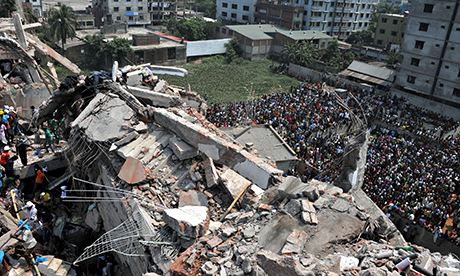
Today is the first anniversary of the Rana Plaza disaster, the collapse of a garment factory in Bangladesh which killed 1138 workers. It was a matter of sheer greed on the part of owners who continued to add floors to the building without permits or inspections. But the collapse also brought to light our greed, our willingness to purchase inexpensive and essentially disposable clothing produced in distant countries by workers who are paid very little. In the aftermath we learned a great deal about poor working conditions, long hours, low pay and the lack of benefits. We discovered that Canadian companies such as Loblaw, under the Joe Fresh label were able to offer us cheap fashion thanks to these workers.
Of course it's always complicated. The ambassador from Bangladesh pleaded with us not to stop buying clothes made in Bangladesh because this is such an important of the economy. It is far more important, he told us, to insist on fair workplace environments and a system of monitoring.
Some companies, such as Loblaw, have moved in that direction. Others, such as Walmart, have been unwilling to sign on to a charter or agreement protecting workers out of concern for litigation. It seems cowardly, to say the least.
Do you pay closer attention to where your clothing comes from since this disaster? Is this yet another symptom of our throw-away "gotta have the latest" society? Should we care about this as Christians as a matter of justice?
1 comment:
I have always been almost obsessive about buying Canadian - and preferably local - groceries, and have tried doing the same with clothing, but it's not as easy.
It is disturbing to know that the clothes I wear are coming from factories that abuse its workers. I would gladly pay more to support either Canadian or American made clothes, or if from the Far East, clothes that are made in factories that pay their workers appropriately and care about them.
Post a Comment